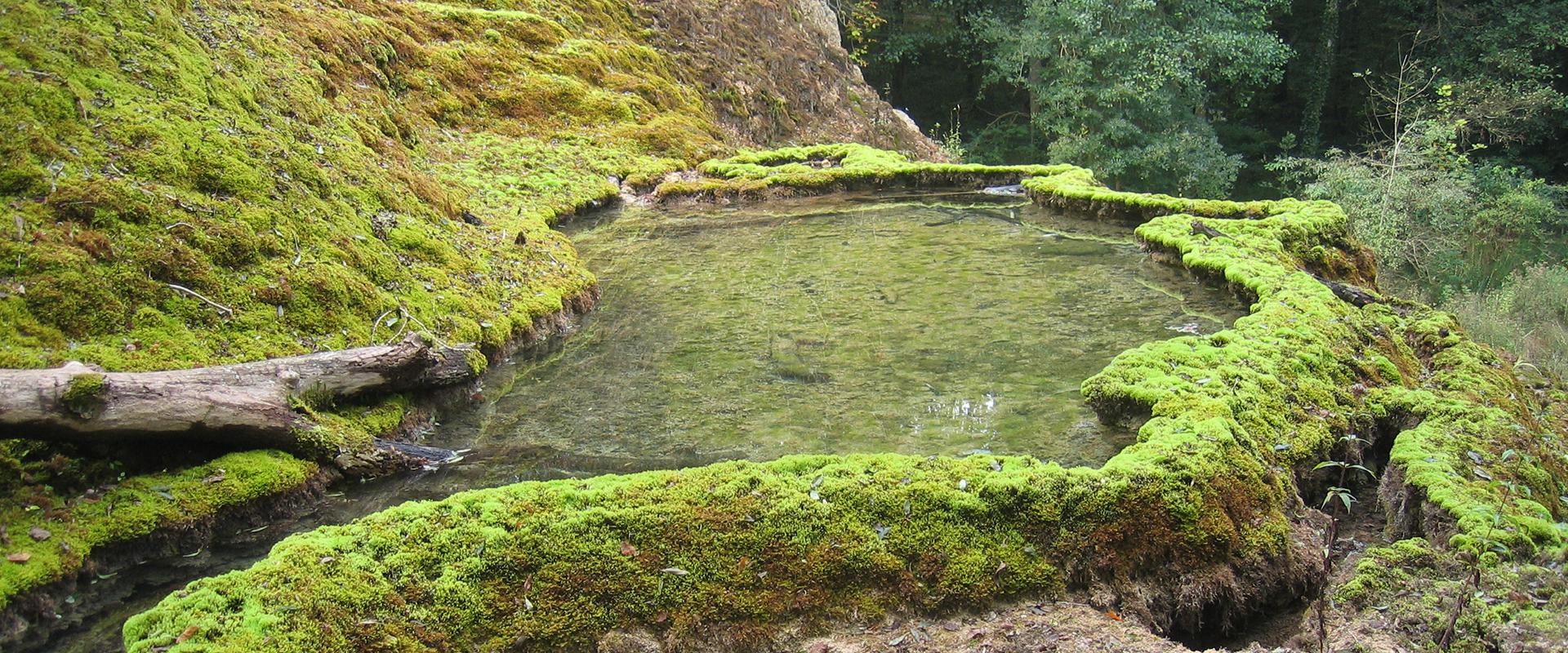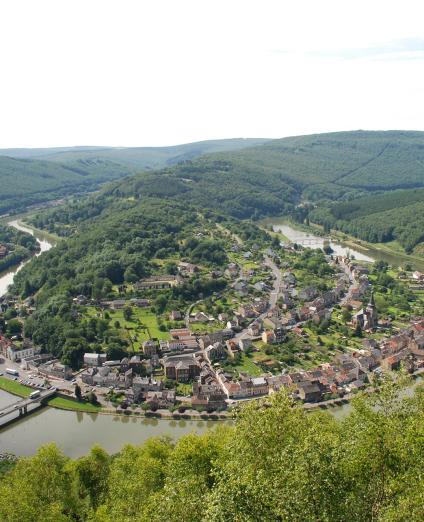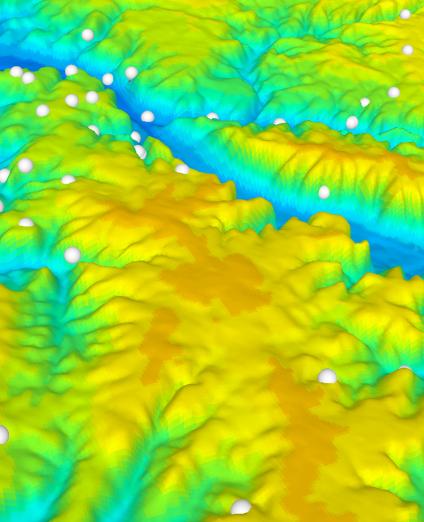
Water spring in a meadow.
© Adobestock - Pavel Klimenko
Policy-making for groundwater: an invisible yet essential resource
Addressing the governance, management and monitoring of groundwater resources, the symposium was jointly organised by BRGM and the French Biodiversity Agency (AFB). The aim was to communicate about BRGM's activities and the valuable support they provide in terms of government policy-making on water management, and to exchange ideas about potential future scenarios concerning water resources.
The symposium brought together representatives from organisations in charge of defining and implementing public policies on water and particularly focused on emerging challenges and the latest solutions that have been developed based on recent research. The sessions during the day included presentations, testimonials and feedback from operators who have already been able to apply these new solutions, such as the Water Agencies, DREAL, local authorities, water management syndicates and nature protection associations.
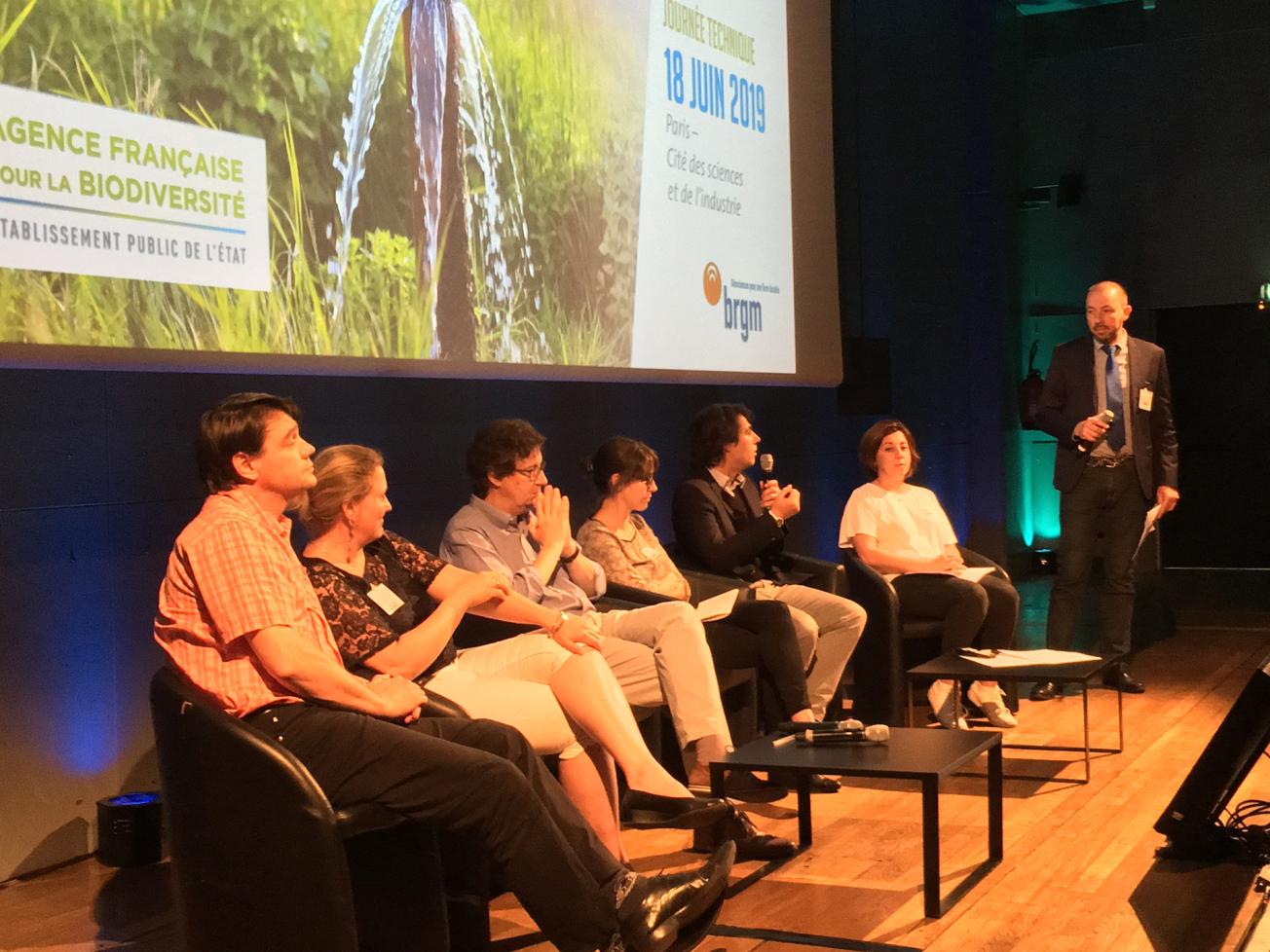
The symposium on "Policy-making for groundwater: an invisible yet essential resource", jointly organised by BRGM and AFB on 18 June 2019 in Paris.
© BRGM
Programme
Below, you will find the slide presentations made by the different speakers during the day, according to the chronological order of the programme.
At the end of the presentations, a brief summary of the discussions that took place is available, or you can download a more detailed summary of the proceedings.
Click on the speaker's name to download the presentation
9:30am -10:00am - Introduction by the Water and Biodiversity Directorate of the French Ministry for Ecological and Inclusive Transition
Introductory speeches
- Alexandra Lequien (MTES/DGALN - Water and Biodiversity Directorate)
- Bénédicte Augeard (French Biodiversity Agency - Research, Development and Innovation Dept.)
- Nathalie Dörfliger (BRGM - Strategy, Research and Communication Dept.)
10.00am - 12:40pm - SESSION 1: Making invisible subterranean processes visible - groundwater monitoring from data acquisition to distribution
Quantitative monitoring
- Quantitative monitoring of aquifers in France [Céline Nowak]
French Biodiversity Agency - Research, Development and Innovation Dept. - Use of piezometric data to develop decision support tools [Arnaud Wuilleumier]
BRGM Nouvelle Aquitaine - Testimonial 1 - Use of piezometric data [Xavier Marly]
DREAL Rhine Meuse basin - Testimonial 2 - Use of piezometric [Nicolas Lienart]
General Council of the Hérault Département - Future challenges in piezometric monitoring
Round table
Monitoring groundwater quality
- Monitoring groundwater and developments in regulatory requirements concerning the monitoring of groundwater quality [Benjamin Lopez]
BRGM - Water, Environment, Eco-technologies Dept. - A tool for exploiting regulatory data on groundwater - QUALINET [Elsa Ouvrard]
Seine Normandy Water Agency - Prospective monitoring of aquatic environments [Pierre-François Staub]
French Agency for Biodiversity - Research, Development and Innovation Dept. - Searching for emerging pollutants in groundwater - ERMES Project [Lajlah Luther / Miguel Nicolai]Grand Est Regional Council/Rhine-Meuse Water Agency
- Harnessing the Collective Intelligence of Water Data - PIC'EAU project [Stéphanie Larbodie]
Gironde Département - Future challenges as regards monitoring groundwater quality
Round table
2.00pm - 4:30pm - SESSION 2: Making the invisible visible for water management organisations and civil society - Groundwater management and governance
Integrated water resource management
- How the economy contributes to integrated management [Julien Gauthey]
French Biodiversity Agency - Economic implications of the options chosen to protect groundwater [Cécile Hérivaux / Laurent Cadilhac]
BRGM - Water, Environment, Eco-technologies Dept./Rhône-Mediterranean-Corsica Water Agency - WIS: The Water Information System [Laurent Coudercy]
French Biodiversity Agency - Reference systems and their importance for integrated water management [Pierre Marchet]
Adour-Garonne Water Agency - The need for the integrated management of droughts, floods, and rising water [Stéphane Gillis]
French Joint Syndicate for water management, collective and on-site waste-water treatment, aquatic environments and mosquito control - How to promote the development of integrated water resource management?
Round table
Active groundwater management
- State of the art, current obstacles and challenges [Nathalie Dörfliger]
BRGM - Strategy, Research and Communication Dept - Feedback on the management of the Crau aquifer [Charlotte Alcazar]
Joint Syndicate for the management of the Crau aquifer - Active management of Le Lez karst system [Arnaud Vestier]
Montpellier Metropolitan Council - Rainwater infiltration, the example of the Rennes Metropolitan Area [Mélanie Bardeau]
BRGM Brittany
4.30pm - 5.00pm - Conclusion
Keynote speakers
- Charlotte Alcazar (Joint Syndicate for the management of the Crau aquifer)
- Pierre Marchet (Adour-Garonne Water Agency)
- Stéphane Gillis (Joint Syndicate for water management, collective and on-site waste-water treatment, aquatic environments and mosquito control
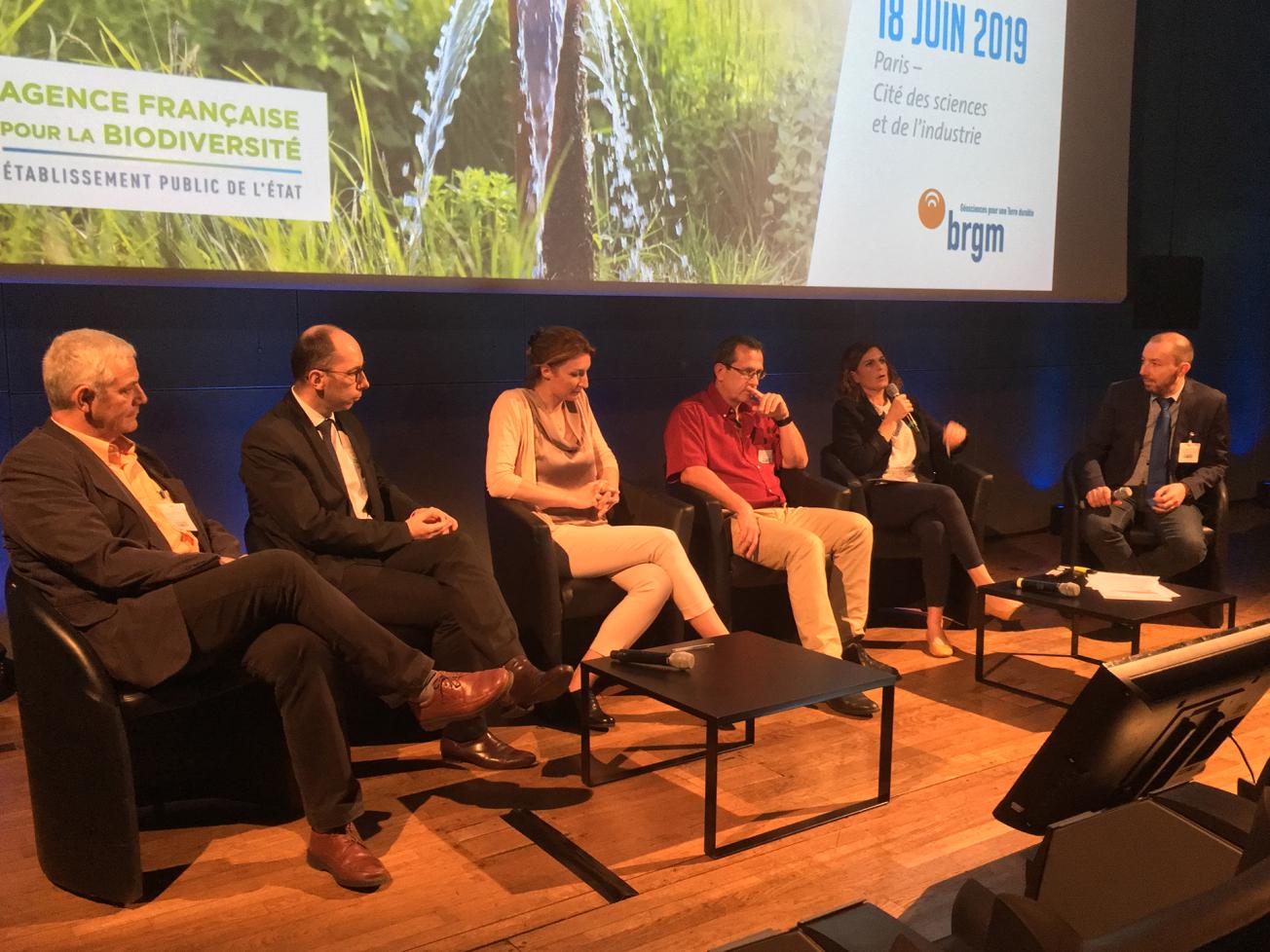
The symposium on "Policy-making for groundwater: an invisible yet essential resource", jointly organised by BRGM and AFB on 18 June 2019 in Paris.
© BRGM
At a glance
This day of technical presentations and discussions addressed the theme of groundwater, an invisible yet essential resource and a central component of national and local water management policies, which is directly impacted by the social and climate issues facing the world. Organised by BRGM and the French Biodiversity Agency (AFB), the aim of the symposium was to share the results of research & development initiatives and public-policy support projects with governmental water-management departments, water agencies and local authorities. The results presented are the fruit of several projects carried out as part of a three-year agreement between AFB and BRGM [2016-2018], as well as public-sector projects carried out by BRGM in partnership with public entities, such as water-management syndicates. The symposium included more than 20 presentations, divided into two main sessions: the first focusing on groundwater monitoring (from acquiring the initial data to exploiting the information gathered) and the second addressing groundwater management and governance. Each session was followed by a round table chaired by Valéry Dubois, a scientific journalist. A total of 110 people took part in the symposium.
The symposium highlighted the importance of groundwater management both from a usage and regulatory point of view, in particular as regards the implementation of the European Groundwater Directive [2006/118/EC], and the challenges of protecting and managing these invisible resources in a sustainable manner. The Water and Biodiversity Directorate (DEB) of the French Ministry for Ecological and Inclusive Transition (MTES), the AFB and BRGM all underlined the importance of having detailed knowledge and reliable data concerning these resources and of developing methodologies, guides and tools, based on the latest research conducted by French, European and international organisations. Ensuring the link between expertise, public policy support and research & development is essential.
The DEB emphasised the need to undertake more controlled and closely-monitored actions, and notably the need to retain groundwater resources during high-water periods and then restore them during periods of water shortages, whenever such actions are feasible, useful and sustainable. Water resources need to be shared in a fair and sustainable manner. Achieving this objective is a national priority in terms of health, public safety, civil security and economic development. With this in mind, and in view of the increasing impact of climate change, the DEB announced that the Government has issued guidelines to Préfets aimed at giving renewed impetus to the principle of shared water management, through the implementation of Territorial Water Management Projects (PTGEs).
The AFB provides scientific mediation on knowledge and research linked to water resources. It ensures the promotion and transfer of this knowledge to the organisations in charge of water management. Raising awareness of the importance of groundwater involves overcoming many challenges. In particular, the fact that groundwater is an "invisible" resource makes it more difficult to get this compartment of the aquatic environment included in the public policy agenda. However, the groundwater environment plays an integrating role, and its high level of inertia can be used to adapt to the effects of climate change. Nonetheless, this characteristic means that groundwater management must be considered from a long-term perspective, integrating the other compartments of the aquatic environment in order to protect this natural asset, which represents a "life insurance policy" for the future. Current needs mean that tools deployed at national level now need to be transferred and adapted at local level, in order to help regions improve their management of this common asset, and notably take a more proactive approach to aquifer recharge.
BRGM underlined the strategic priorities of its scientific programme dedicated to groundwater. It also addressed the issue of managing groundwater resources within the context of climate change, the effect of societal issues and the increasing pressure on water resources, in both quantitative and qualitative terms. Indeed, pressure on this resource (which is essential for various sectors) is increasing significantly, meaning multidisciplinary approaches and partnerships (public-public/public-private) need to be implemented to respond effectively to the challenges.

